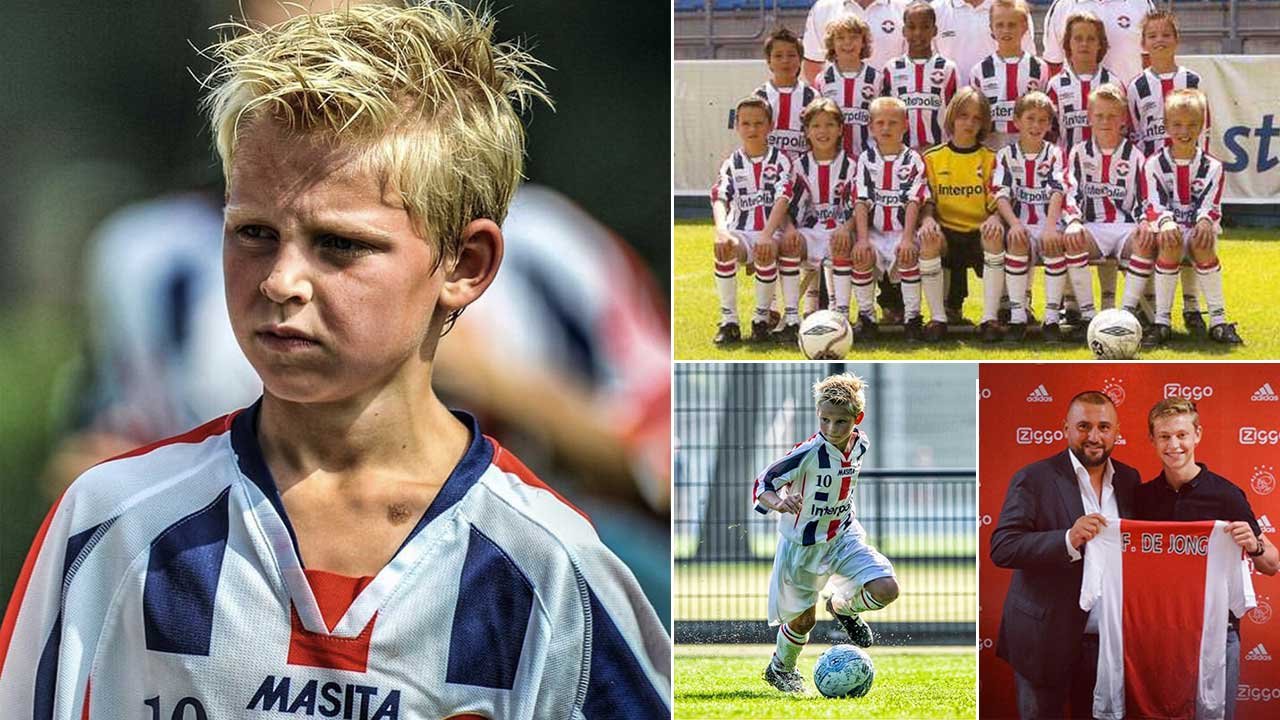Casillas, San Iker
Casillas
World champion for clubs and national teams, European champion for clubs and national teams, champion in Spain and Portugal, voted the best goalkeeper in the world five times… .
Born in Móstoles, in the Madrid community, Casillas arrived at Real Madrid at the age of 13, and his potential caught attention from an early age. He went through all the youth layers of the Spanish national team, becoming world champion under-20 in 1999, in a team that had Marchena and Xavi, who would be companions of great victories in the senior team.
Interestingly, Casillas was Aranzubia’s backup for almost the entire tournament, but he felt the taste of victory there – and his entire career would be full of triumphs and titles.
Young but already winner
After winning the under-20 title, Casillas was definitely promoted to Real Madrid’s first team (he had already been called up to one game in 1997/98, but without playing). The expectation was that he would be the third option for the goal, after Illgner and Bizzarri. However, an injury to Illgner and the irregularity of the Argentine goalkeeper led the Welshman John Toshack to give young Iker the opportunity.
In September 1999, aged 18, he made his debut in a 2-2 draw in Bilbao. Few could have imagined that the birth of one of the greatest goalkeepers in history would begin there. He made 47 appearances that season, becoming the youngest starting goalkeeper in the Champions League final – which the Merengues won in Paris, against Valencia (3-0).
To end a dream season, Casillas made his debut for Spain’s senior national team and was called up by Camacho for Euro 2000, a competition where he was never used.
2002, the year of definitive affirmation
In 2000/01, he maintained his regular status at Real Madrid and won his first Spanish league title, but in 2001/02, after starting the season as a regular, he lost his place to César Sanchez. However, it was in this season that Casillas’ football was definitively established and the nickname of “San Iker” (for making impossible defenses) appeared.
A substitute in the Champions League final against Bayer Leverkusen, he had to come on in the second half due to César’s injury, and was truly decisive for Real Madrid’s title, with three spectacular saves in the final stretch of the game. That final is still remembered today for Zidane’s fantastic goal, but no one can forget Casillas’ miracles either.
Throughout his career, Casillas has always referred to luck as an important factor in his success, and 2002 proved something of that. After having shone in the Champions League final due to an injury to a teammate, Casillas started in the 2002 World Cup due to the misfortune of the then holder in the goal of the Spanish national team, Cañizares (an unusual injury, since he cut his foot with a perfume bottle), and shone in the tournament, especially in the round of 16 game against the Republic of Ireland. From then until 2016, Casillas was always the owner of the Spanish goal.
the galactics
At Real Madrid he continued to win titles and international prestige, being one of the highlights of one of the best known teams in history, the Galacticos. Every year Real Madrid signed one of the best players in the world, including Zidane, Ronaldo, Figo, Beckham, Roberto Carlos and Raúl in the same team. If they lent magic and goals to the team’s football, in goal Iker shone intensely.
At Real Madrid, despite having won four Spanish championship titles between 2003 and 2012, he would only win the Champions League again in 2014. But, during this period, he experienced great moments in the Spanish national team.
The Captain of the Golden Generation
After the disappointment in Euro 2004 (Spain was eliminated in the group stage) and a Cup in 2006 that was not what was expected (Spain shone in the group stage but fell to Zidane’s France in the round of 16), Spain dominated the world of football between 2008 and 2012. With Aragonés as coach, and despite a difficult start – Spain lost two of the first three games in the Euro 2008 Qualifiers -, the Spanish team entered the tournament far from favorites .
Despite the enormous quality of the squad (the considered golden generation of Spanish football), the Spaniards were known by the nickname of Fúria, but also by the disappointments. The history of failures in Spanish football was long (only one title, in 1964), which made many not believe in the Spanish team in the tournament.
However, Euro 2008 Spain has become one of the best teams in history. With fantastic football, where tiki-taka was imposed, Spain put on a show throughout the competition, winning five of the six games played. In the only game they didn’t win in regulation time, Spain thanked Casillas, decisive in the penalty shoot-out against Italy.
In the final, in Vienna, a goal by Fernando Torres defeated Germany and Spain ended a drought that lasted more than 40 years. It was Casillas, the captain, who lifted the trophy.
But Spain’s big goal was the world title. The history of the selection in Cups was long but without any success – and it was rarely close to that. Everything has changed in South Africa. Despite the initial defeat to Switzerland, Spain rocked and won six consecutive victories, and Casillas was one of the most prominent names in the victory: he did not concede a goal in the knockout phase and was decisive in the quarterfinals, against Paraguay (he defended a penalty) and especially in the final.
The defense of a shot by Arjen Robben, when it was 0-0 on the scoreboard, was considered the moment of the game and Spain ended up defeating the Netherlands in extra time, winning the Cup for the first time in history. At the end of the game, captain Casillas lifted the trophy. He had reached footballing heaven!
Two years later, in 2012, Spain became the first team to win the Euro in two consecutive editions, again with Casillas as a determining figure. He would still participate in the Cup in Brazil, in 2014, where he was not at the same level, and in the Euro 2016, when he was David de Gea’s reserve, playing his last game for the selection in June 2016, with 160 matches in total – he arrived to be a record holder until he was passed by Sergio Ramos.
End of cycle in Madrid
In 2012/13, with José Mourinho as coach of Real Madrid, Casillas lost the title to Diego López, in a decision not understood by the meringues fans . Mourinho left, Ancelotti arrived, but Casillas continued as a substitute, playing only in the Copa del Rey and the Champions League – and won the competition for the third time in his career, now as captain of the team.
In 2014/15, he took over the title at the club again, but the acquisition of Navas hinted that there would be a bet on the Costa Rican. Thus, at the end of the season, Casillas left Real Madrid as the second player with the most games for the club and with 18 titles won.
Surprisingly, Casillas was reinforced by Porto, from Portugal. He spent three seasons in the country, becoming national champion in 2017/18, in a year in which he lost his title to José Sá, but recovered it in time to be one of the most important players in the blue and white team’s title, which thus ended with a four-year fast without titles.
On the first day of May 2019, Casillas suffered a heart attack in Porto training, after having renewed his contract with the club. Despite having expressed a desire to continue playing, and even returning to training on a conditional basis, he ended up confirming his retirement.
It was 20 years at a high level, with a total of 23 titles as a professional. With great reflexes, professional ethics, a leader’s profile and a born winner, Casillas has earned the right to be considered one of the best goalkeepers in history. His heart betrayed him when he still had more to offer football, but his entire career made San Iker eternal, lord of miraculous saves.


















